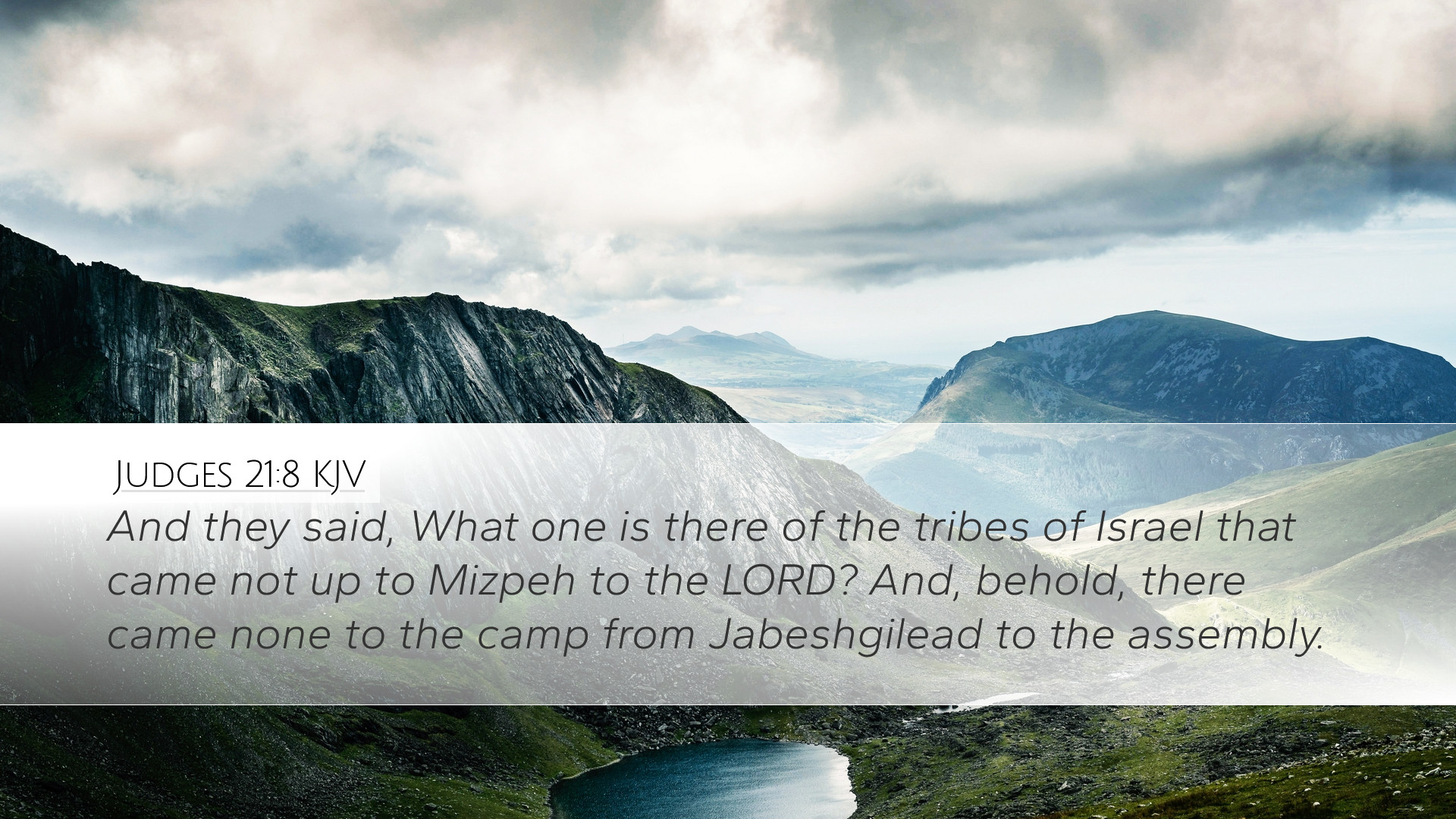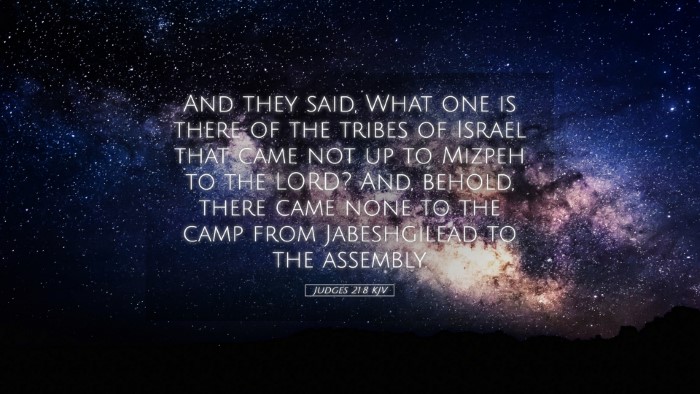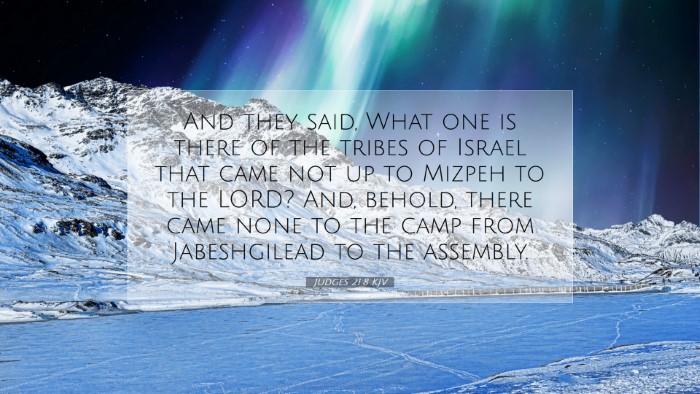Commentary on Judges 21:8
The verse from Judges 21:8 states, "And they said, What one is there of the tribes of Israel that came not up to Mizpeh to the LORD?" This passage comes at a critical juncture in the narrative of the Book of Judges, highlighting issues of obedience, unity, and the consequences of disobedience among the tribes of Israel.
Contextual Background
At this point in the book, the Israelites are dealing with the aftermath of a civil conflict regarding the tribe of Benjamin. The question posed in Judges 21:8 is significant as it reveals not just a concern for communal participation in worship, but also a profound sense of accountability and unity within the nation.
Analysis and Insights
-
Einstruction from Matthew Henry:
Henry emphasizes the need for collective engagement in the worship of God. He highlights that the tribes were expected to unite in solemn assembly, marking it as a divine command. This assembly served as a reminder of their shared faith and duty towards God.
-
Perspective of Albert Barnes:
Barnes notes that the gathering at Mizpeh was pivotal in the Israelites' decision-making process. It underscores a crucial principle: accountability amongst brethren. The question directed towards the tribes reflects an evaluation of their individual and collective commitments to God.
-
Insights from Adam Clarke:
Clarke provides a deeper examination into the ramifications for those tribes that neglected the call. He reflects on the dangers of isolationism within the community of believers, suggesting that failure to respond could lead to spiritual and social fragmentation.
Theological Themes
This verse encapsulates several important theological themes.
-
Unity and Community:
A significant theme in Judges is the unity of the tribes of Israel. The question about who did not come to Mizpeh suggests that individual actions contribute to the collective identity of God's people. The New Testament echoes this sentiment in passages that discuss the Body of Christ, where every member plays a vital role in the communal life of faith.
-
Obedience:
There is an implicit call to obedience in this passage. The tribes are being questioned about their lack of participation, which indicates a failure to follow the directives given by God. This serves as a reminder that obedience to God's commands is integral to the life of faith and community.
-
Consequences of Disobedience:
The context of Judges shows a cycle of disobedience leading to chaos and suffering. The gathering at Mizpeh serves as a moment for reflection and correction. The absence of tribes implies potential judgment and matters of justice that may arise from their lack of participation.
Application for Modern Readers
This passage continues to speak to contemporary Christians about the importance of not only attending gatherings of worship but being active participants in communal faith. Some believers today may neglect the call to worship due to various excuses, much like those referred to in Judges 21:8. Here are some practical applications:
- Evaluate Priorities: Reflect on what prevents engagement with the community of believers. Are personal distractions hindering participation?
- Foster Unity: Recognize the importance of unity in the church body. Engage in efforts toward reconciliation and understanding among diverse groups within the church today.
- Answer the Call: Be responsive to the call of God and avoid complacency. Attend worship, partake in communal activities, and follow God's leading in personal and community settings.
- Take Responsibility: Each member of the body of Christ is accountable to God and one another. Strive to be an active and engaging participant in the community of faith.
- Embrace Accountability: Encourage fellowship groups where believers can hold one another accountable illustrating the necessity for each tribe to come together in God's purpose.
Conclusion
Judges 21:8 serves as a testament to the necessity of community, active participation, and the solemn responsibility that lies upon each individual within the body of believers. Through the reflections of Matthew Henry, Albert Barnes, and Adam Clarke, we understand that engagement with God and one another is not merely beneficial but essential for a thriving faith community. May contemporary believers heed the call to come together in unity, to worship, and to fulfill God's purposes collectively.


